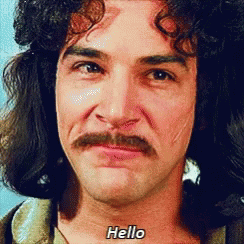With what shall I come before the Lord
And bow myself before God on high?
Shall I come before Him with burnt offerings
Shall I come before Him with yearling calves?
Will the Lord be pleased with thousands of rams
With ten thousand rivers of oil?
Shall I give Him my firstborn for my transgressions
The fruit of my body for the sin of my soul?
He has shown you, O man;
He has shown you what is good.
And what does the Lord require of you
But to do justice, and to love kindness
And to walk humbly
Walk humbly with your God.
—Text of John Ness Beck’s Offertory, adapted from Micah 6:6-8
I remember singing these words with a church choir when I was very young, probably around 10 years old.
I remember most pieces I’ve performed with choirs, especially the ones I sung (sometimes I play piano, organ, or other instruments). Other favorites include
- John Rutter’s Candellight Carol
- Stephen Chatman’s setting of Reconciliation a text by Walt Whitman
- The Pasture, one of Randall Thompson's settings of Robert Frost poems
- Loving-Kindness, an excerpt from Buddhist scripture set by Stephen Paulus
- Mack Wilberg's version of My Shepherd Will Supply My Need
I don’t think of myself as being very religious. I participate pretty regularly in services with my local Mormon (officially called the Church of Jesus Christ of Latter-Day Saints) congregation. That helps fulfill my need for community. My beliefs are unorthodox and my commitment to church activity has been stronger in the past. But the language of scripture was part of the language of my family from before I was born, so it stays with me even though I don't practice by reading as often as the Church says I should.
This week the words from Micah (with Beck's beautiful harmonies) have been on my mind a lot, especially the last verse. However you define God, Micah says that God’s requirements for you and me are 1) do justice, 2) love kindness, and 3) walk humbly. With the murder of George Floyd, the murder of Ahmaud Arbery, and the attempted lynching by cop of Christian Cooper in between, we’ve seen some recent bad examples. I know police have killed other people before George Floyd. I do not include their names here because these thoughts were mainly prompted by events surrounding these three recent cases. For anyone reading this, please do include other people in your thoughts as you go on. Their lives and their stories are no less important than the ones I have in mind.
Micah's first instruction is to do justice. My understanding of justice has changed over time. Until recently I worked as a mental health counselor. Nearly my whole career as a counselor, I worked with populations that go underserved. I started off working with adults who were involved with the criminal justice system. There is so much stigma surrounding people who have been arrested or charged with a crime. Aside from their involvement with government/legal systems, the social stigma makes it hard for these folks to find much justice. There are plenty of arguments to be made about people involved in the criminal justice system, and this is not the setting for them. Let's leave it at this: people ending their time of criminal justice involvement face a ripple effect that never stops affecting their lives, even if they never have any other contact with police or the courts.
From there I transitioned to working with people who were diagnosed with personality disorders. Personality disorders are a special group of diagnoses that describe trends in the person's behavior that last for a long time, and that often show little change even after intensive treatment. There are plenty of opinions among mental health workers about what personality disorders are, where they come from, and how to work with them. For decades, many therapists have been hesitant to treat people with personality disorders because the long-term prognosis is worse compared to other kinds of mental health disorders. In the last 30 years or so, a few researchers have developed treatment methods that work well for one or a couple of personality disorders. There is still research happening now to find out how best to serve people with these diagnoses. And it's important to know that people with personality disorders are still receiving services less often and less effectively than people with other kinds of problems.
After learning to use a specialized treatment for borderline personality disorder, I transitioned to working exclusively with kids and their families. I joined a group that focuses on racial and ethnic minorities, and I got to work with Black and Latino families more often. I moved to Oregon and worked for a while in a for-profit clinic with kids experiencing problems with mental health and drugs at the same time. From there I went back into the non-profit side to do mental health crisis response work. Since I speak Spanish, I worked almost exclusively with Spanish-speaking families in crisis.
Throughout my time working with underserved, under-seen and less-understood groups of people, I found it critically important and useful to keep up with the science of racism. I could never be an effective therapist if I were re-creating the conditions that kept my clients stuck. No therapist can be there for their clients if they perpetuate any kind of racism.
In counselor school (at least when I was there) there's a strong emphasis on developing cultural competency. In part, that includes learning what styles of therapy and what interventions work best with people of different cultures. In general, people of some cultures experience more change when the counselor is very direct and gives specific instructions. People of other cultural groups tend to have more meaningful change when the counselor talks less and gives more vague or indirect input. Another side of cultural competency is learning about power, privilege, and oppression, and looking at how they play out in the lives of the therapist and the client. Those three words, power, privilege, and oppression come up a lot in the last few decades' worth of scientific literature of psychotherapy, and with good reason. There are systems in place in the US and around the world that are meant to preserve the status quo--that means keeping power in the hands of the people who already have it. Social scientists (including therapists) call this systemic racism.
Most people in the US today recognize that racism has played a big part in US history. Black people were slaves, treated as property or livestock rather than people. After emancipation came laws designed to stop Black people from obtaining or keeping wealth, voting, owning weapons, etc. Other rules (some formal, some unwritten) made it easier for White people to get away with violence towards Black people than for Black people to get away with violence towards anyone. More recently there have been laws regarding punishments for crimes committed more often by White people vs. crimes committed more often by Black people, with the result that Black people are incarcerated at a much higher rate. In between there have been rules made by banks about the geography of home loan approval, along with a slew of other policies enacted by government and business that all end up maintaining the status quo.
And the status quo is such that Black people and other people of color are still oppressed even in today's America. We as a society have moved closer to equity (treating everyone fairly, rather than equality, which means treating everyone the same) in the last few decades, but we're still not there. Staying quiet helps preserve the status quo. I know that has been sort of a buzz-phrase in the days since George Floyd's death, and I still find truth in it. If we stay quiet, we tacitly give our support to the way things have always been.
Professional organizations for therapists have started to stand up against racial inequity, as well as other forms of inequity. These groups strive to be apolitical, and to avoid any kind of political affiliation at a group level, even as they encourage individual members to vote and advocate for government policies that help the profession and the clients. However, these organizations have concluded that maintaining the status quo is a political stance, and one that tends to match the interests of conservatives or the Republican Party, at least in the US. Therapist professional organizations argue that by advocating equity, they seek to empower all voters, regardless of race, religion, socio-economic status, gender identity, sexual orientation, etc. And by empowering all, the organizations remain neutral in the political landscape.
This has been a long, rambling, thought-vomit kind of entry here. And if you chose to follow what I write on this blog, you agreed to take that risk. It was in the fine print. Don't look for it.
To bring it back to the song I quoted at the beginning: however we perceive or imagine God, all we need to do is act in justice, love kindness, and be humble. We can do justice by voting, contacting government officials, and moving our nation towards internal peace. There are all sorts of stats showing how the law can be satisfied with less violence, though that's a topic for another day. We're on track, and need to keep going. To love kindness can be tricky. I like to think that each time we act kindly towards someone, we come to love kindness a little more, or to be a little more committed to kindness. And when we are humble, we will gladly share our power with people who have been oppressed. We will recognize our privilege as something that just happened in our lives, and we will seek to use it to make the world better for every person.
Let's listen to Micah.
Micah's first instruction is to do justice. My understanding of justice has changed over time. Until recently I worked as a mental health counselor. Nearly my whole career as a counselor, I worked with populations that go underserved. I started off working with adults who were involved with the criminal justice system. There is so much stigma surrounding people who have been arrested or charged with a crime. Aside from their involvement with government/legal systems, the social stigma makes it hard for these folks to find much justice. There are plenty of arguments to be made about people involved in the criminal justice system, and this is not the setting for them. Let's leave it at this: people ending their time of criminal justice involvement face a ripple effect that never stops affecting their lives, even if they never have any other contact with police or the courts.
From there I transitioned to working with people who were diagnosed with personality disorders. Personality disorders are a special group of diagnoses that describe trends in the person's behavior that last for a long time, and that often show little change even after intensive treatment. There are plenty of opinions among mental health workers about what personality disorders are, where they come from, and how to work with them. For decades, many therapists have been hesitant to treat people with personality disorders because the long-term prognosis is worse compared to other kinds of mental health disorders. In the last 30 years or so, a few researchers have developed treatment methods that work well for one or a couple of personality disorders. There is still research happening now to find out how best to serve people with these diagnoses. And it's important to know that people with personality disorders are still receiving services less often and less effectively than people with other kinds of problems.
After learning to use a specialized treatment for borderline personality disorder, I transitioned to working exclusively with kids and their families. I joined a group that focuses on racial and ethnic minorities, and I got to work with Black and Latino families more often. I moved to Oregon and worked for a while in a for-profit clinic with kids experiencing problems with mental health and drugs at the same time. From there I went back into the non-profit side to do mental health crisis response work. Since I speak Spanish, I worked almost exclusively with Spanish-speaking families in crisis.
Throughout my time working with underserved, under-seen and less-understood groups of people, I found it critically important and useful to keep up with the science of racism. I could never be an effective therapist if I were re-creating the conditions that kept my clients stuck. No therapist can be there for their clients if they perpetuate any kind of racism.
In counselor school (at least when I was there) there's a strong emphasis on developing cultural competency. In part, that includes learning what styles of therapy and what interventions work best with people of different cultures. In general, people of some cultures experience more change when the counselor is very direct and gives specific instructions. People of other cultural groups tend to have more meaningful change when the counselor talks less and gives more vague or indirect input. Another side of cultural competency is learning about power, privilege, and oppression, and looking at how they play out in the lives of the therapist and the client. Those three words, power, privilege, and oppression come up a lot in the last few decades' worth of scientific literature of psychotherapy, and with good reason. There are systems in place in the US and around the world that are meant to preserve the status quo--that means keeping power in the hands of the people who already have it. Social scientists (including therapists) call this systemic racism.
Most people in the US today recognize that racism has played a big part in US history. Black people were slaves, treated as property or livestock rather than people. After emancipation came laws designed to stop Black people from obtaining or keeping wealth, voting, owning weapons, etc. Other rules (some formal, some unwritten) made it easier for White people to get away with violence towards Black people than for Black people to get away with violence towards anyone. More recently there have been laws regarding punishments for crimes committed more often by White people vs. crimes committed more often by Black people, with the result that Black people are incarcerated at a much higher rate. In between there have been rules made by banks about the geography of home loan approval, along with a slew of other policies enacted by government and business that all end up maintaining the status quo.
And the status quo is such that Black people and other people of color are still oppressed even in today's America. We as a society have moved closer to equity (treating everyone fairly, rather than equality, which means treating everyone the same) in the last few decades, but we're still not there. Staying quiet helps preserve the status quo. I know that has been sort of a buzz-phrase in the days since George Floyd's death, and I still find truth in it. If we stay quiet, we tacitly give our support to the way things have always been.
Professional organizations for therapists have started to stand up against racial inequity, as well as other forms of inequity. These groups strive to be apolitical, and to avoid any kind of political affiliation at a group level, even as they encourage individual members to vote and advocate for government policies that help the profession and the clients. However, these organizations have concluded that maintaining the status quo is a political stance, and one that tends to match the interests of conservatives or the Republican Party, at least in the US. Therapist professional organizations argue that by advocating equity, they seek to empower all voters, regardless of race, religion, socio-economic status, gender identity, sexual orientation, etc. And by empowering all, the organizations remain neutral in the political landscape.
This has been a long, rambling, thought-vomit kind of entry here. And if you chose to follow what I write on this blog, you agreed to take that risk. It was in the fine print. Don't look for it.
To bring it back to the song I quoted at the beginning: however we perceive or imagine God, all we need to do is act in justice, love kindness, and be humble. We can do justice by voting, contacting government officials, and moving our nation towards internal peace. There are all sorts of stats showing how the law can be satisfied with less violence, though that's a topic for another day. We're on track, and need to keep going. To love kindness can be tricky. I like to think that each time we act kindly towards someone, we come to love kindness a little more, or to be a little more committed to kindness. And when we are humble, we will gladly share our power with people who have been oppressed. We will recognize our privilege as something that just happened in our lives, and we will seek to use it to make the world better for every person.
Let's listen to Micah.




